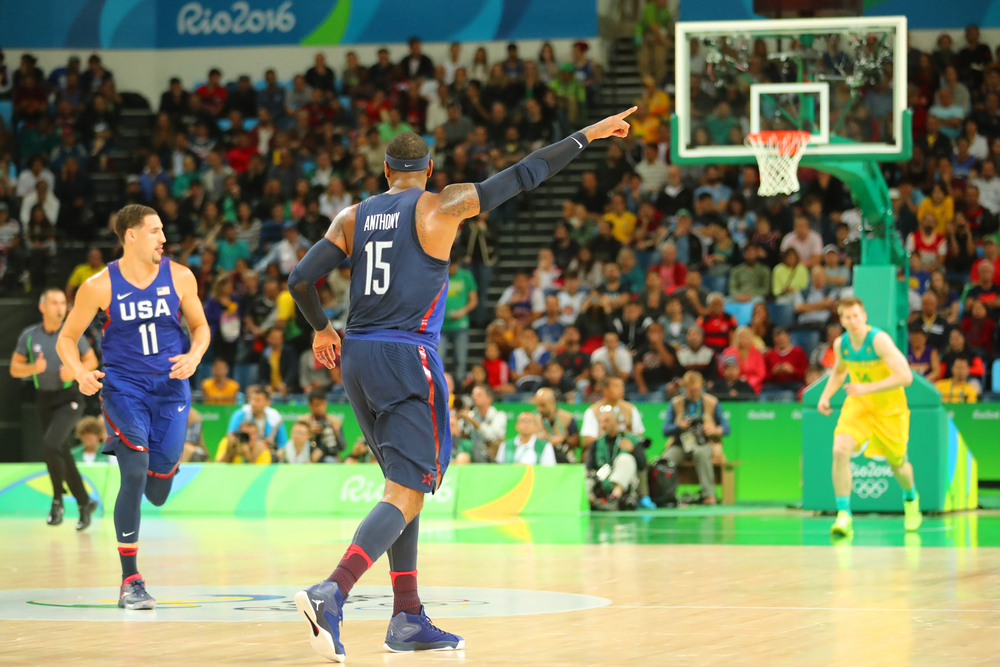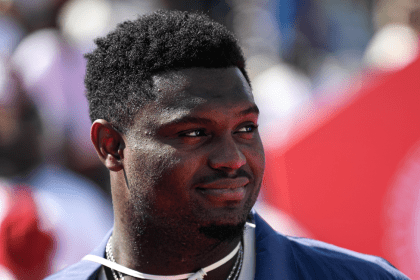You know what separates championship teams from pretenders? It’s not what they do when everything’s going perfectly—it’s how they respond when the world seems to be crashing down around them. The New York Knicks have turned this concept into an art form this postseason, and honestly, it’s both beautiful and completely insane to watch.
Picture this: you’re down 20 points, playing in a hostile arena where the crowd wants nothing more than to see you fail spectacularly, and your season is hanging by a thread. For most teams, that’s nightmare fuel. For the Knicks? That’s apparently their happy place. They’ve now rallied from 20-point deficits three separate times in these playoffs, becoming the first team since 1997 to pull off this kind of comeback trilogy in a single postseason.
What makes this even more remarkable is that they’re doing it consistently on the road, where teams are supposed to crumble under pressure. Instead, the Knicks have flipped the script entirely, turning hostile environments into their personal playground. It’s like they’ve discovered some secret formula for turning adversity into fuel, and nobody else has figured out the recipe yet.
The road warrior phenomenon that nobody expected
Six wins in seven road playoff games. Let that sink in for a moment. In an era where home-court advantage is supposed to matter more than ever, where crowd noise and familiar surroundings can make or break a team’s confidence, the Knicks have essentially said “thanks, but we’ll take our chances elsewhere.” They’re not just winning on the road—they’re dominating in ways that make you question everything you thought you knew about playoff basketball.
The statistics tell an incredible story. Road teams overall are struggling mightily this postseason, going 25-47. But if you remove the Knicks from that equation, other road teams are a dismal 19-46. That’s not just an outlier—that’s a complete rejection of conventional wisdom about how playoff basketball is supposed to work.
What’s particularly fascinating is how the Knicks seem to feed off hostile energy. While other teams wilt under the pressure of thousands of opposing fans screaming for their failure, New York appears to draw strength from it. It’s like they’ve turned every road game into a personal vendetta against an entire city, and they’re winning that battle convincingly.
The mystery of Madison Square Garden struggles
Here’s where things get really weird: the same team that’s unstoppable on the road has been surprisingly vulnerable at home. Five losses in eight games at Madison Square Garden is not what anyone expected from a team that’s supposed to have one of the most intimidating home atmospheres in all of sports.
The defensive numbers tell the whole story. The Knicks have a defensive rating of 110.1 on the road compared to 114.6 at home. That’s not a small difference—that’s the gap between elite defense and merely good defense. Somehow, playing in front of their own fans, in their own building, with all the advantages that should provide, they’re actually performing worse on the defensive end.
Tom Thibodeau’s teams have always been known for their defensive intensity, but this split is unprecedented even by his standards. It suggests something deeper than just tactical adjustments or matchup problems. There’s a psychological component here that’s fascinating to analyze and impossible to fully explain.
The fourth quarter assassins strike again
Perhaps the most impressive aspect of the Knicks’ road success is their ability to win games they have no business winning. In their last five road victories, they’ve trailed going into the fourth quarter every single time. Think about that for a second—they’re essentially spotting their opponents three quarters of good basketball and then deciding to take over when it matters most.
This isn’t luck or coincidence. This is a team that has developed an almost supernatural ability to raise their level of play precisely when the stakes are highest. While other teams tighten up and make crucial mistakes in crunch time, the Knicks seem to find another gear that nobody knew existed.
The Game 3 victory against Indiana perfectly encapsulated this phenomenon. Down by 20 points in a building where they had never won a playoff game, facing elimination from realistic championship contention, they somehow found a way to completely flip the script. They held the Pacers to just 42 points on 36.8% shooting over the final 24 minutes, turning what looked like a certain defeat into a momentum-shifting victory.
Communication and chemistry under pressure
What makes the Knicks’ defensive turnarounds so effective isn’t just individual effort—it’s the way they’ve learned to communicate and adjust on the fly during the most chaotic moments of games. OG Anunoby has noted how their communication improves as games progress, particularly against fast-paced teams like Indiana that try to overwhelm opponents with tempo and pace.
This kind of in-game adjustment and communication is incredibly difficult to develop, especially for a team that underwent significant roster changes during the season. The fact that they’re doing it consistently, and doing it best when the pressure is highest, speaks to both their basketball IQ and their mental toughness.
Mikal Bridges perfectly captured the team’s road mentality, explaining how away games strip away distractions and create an “us against the world” mentality that seems to bring out their best basketball. It’s a fascinating psychological insight into how some players and teams actually perform better when they feel like underdogs or outcasts.
The resilience factor that defines champions
What’s most impressive about this Knicks team isn’t their talent level—though they certainly have plenty of that. It’s their refusal to accept defeat even when defeat seems inevitable. This is the same group that had their toughness questioned entering the playoffs, the same team that had fans longing for last year’s roster throughout much of the regular season.
Yet here they are, repeatedly proving that heart and determination can overcome seemingly impossible odds. They’ve turned themselves into the epitome of resilience, playing their best basketball precisely when their backs are against the wall. That’s not something you can teach or scheme—that’s a characteristic that separates good teams from potentially great ones.
The fact that they’ve now won six road games equals a franchise record set by the 1998-99 team, and they’re not done yet. If they’re going to advance past Indiana and make a serious championship run, they’ll need to win at least one more game at Gainbridge Fieldhouse, a building that had been their personal house of horrors until Game 3.
Championship DNA emerging at perfect time
What we’re witnessing with the Knicks isn’t just a hot streak or a series of fortunate bounces. This is a team discovering its identity at exactly the right moment, figuring out that they’re actually at their best when everything seems to be falling apart around them. That’s the kind of revelation that can transform a good playoff run into something truly special.
The road success, the comeback ability, the fourth-quarter clutch performances—these aren’t just nice statistics to reference later. These are the building blocks of championship DNA, the intangible qualities that separate teams that make noise from teams that make history. The Knicks are proving they belong in the latter category, one impossible comeback at a time.













